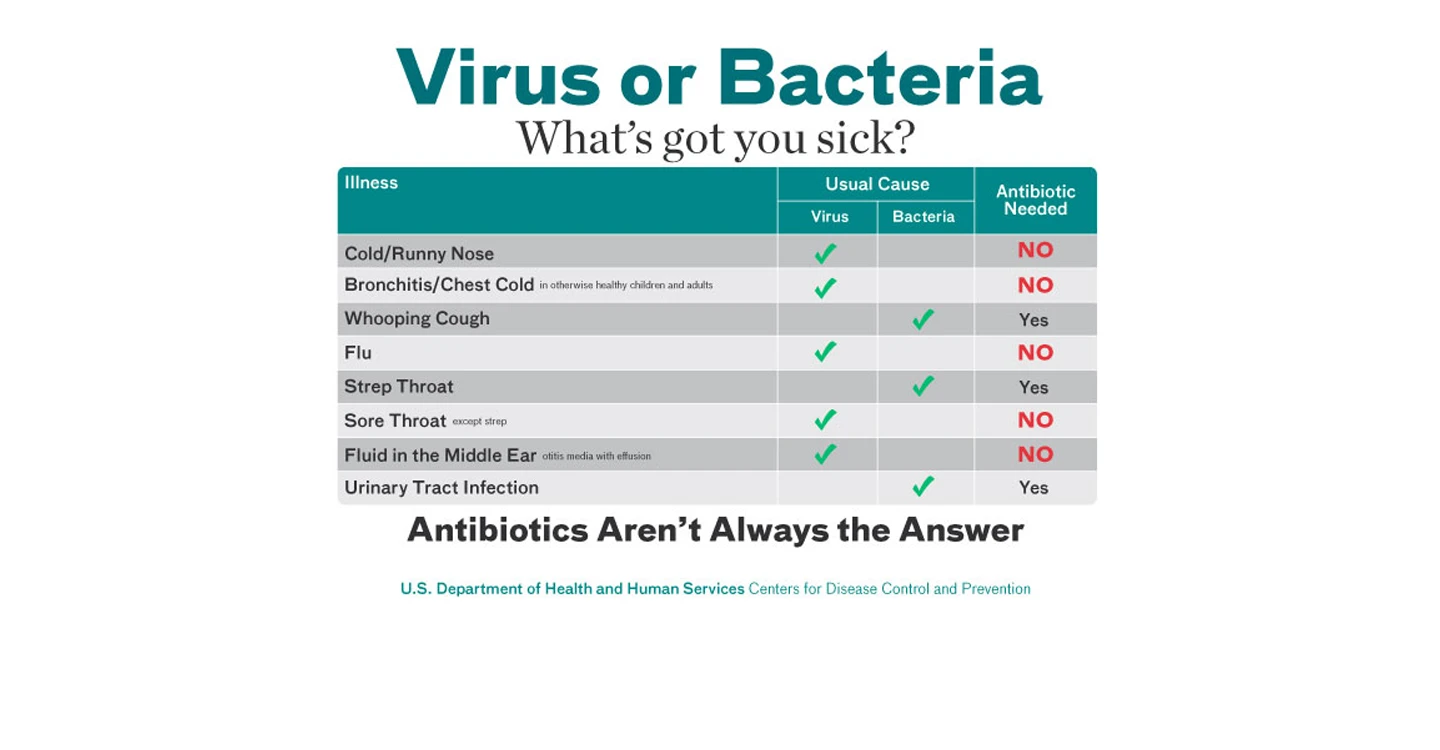ROME, Ga., Nov. 30, 2023 – During cold and flu season, respiratory tract infections are the most common reason people ask their doctors for antibiotics, but often that is not what you need to get better.
You don't need an antibiotic for things like a sore throat, uncomplicated bronchitis, pharyngitis (inflammation of the pharynx that causes discomfort, scratchiness, pain and difficulty in swallowing), sinus infections or the common cold.
Those illnesses are likely caused by a virus. A vaccination might prevent the flu and anti-viral medication can be used to treat it. An antibiotic, however, can't kill viruses.
In fact, taking antibiotics for viral infections like the flu, COVID-19 or other viral infections won't keep other people from getting sick or help you or your child feel better. They may even cause unnecessary and harmful side effects and contribute to antibiotic resistance.
“Antibiotic resistance is partially caused by the overuse of antibiotics," said Dr. Terrell Jenrette, who treats patients at Atrium Health Floyd Primary Care in Rockmart. “Doctors need to be willing to have difficult conversation with their patients about finding alternatives to antibiotics when they are not appropriate. There are over-the-counter remedies that can make them feel better as their body fights off the virus."
Patients also need to make sure they take all the prescribed doses if they receive an antibiotic.
“Many patients stop taking an antibiotic when they start to feel better," Jenrette said. “That results in bacteria not being completely eliminated from the body, and instead that bacteria may build up a resistance to the drugs intended to kill them."
Also, children can often get an upset stomach when they take antibiotics.
Be Antibiotics Aware is a national effort led by the Centers for Disease Control and Prevention to fight antibiotic resistance and improve antibiotic prescribing and use. The CDC is working to make sure prescribers use the right antibiotic, at the right dose, for the right duration and at the right time. Improving the way antibiotics are prescribed and used, or “antibiotic stewardship," is critical to effectively treat infections, combat antibiotic resistance and protect patients from the harm that can come from using an antibiotic when you don't really need one.
